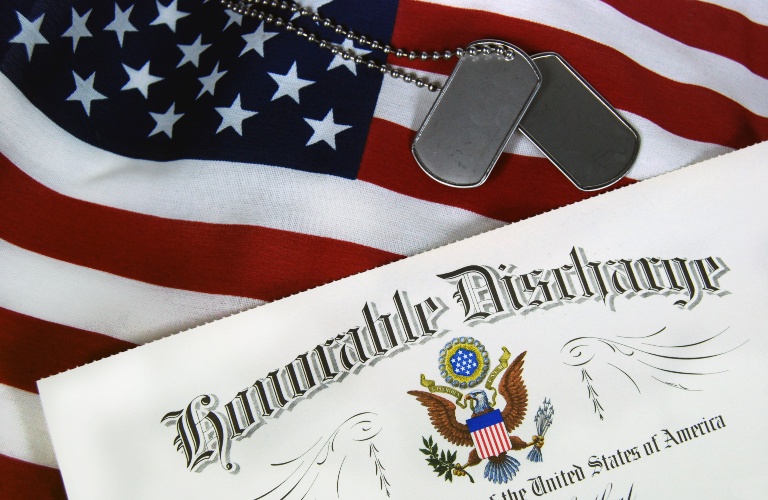
For many veterans, the pursuit of Veterans Affairs (VA) benefits is a crucial step in addressing the lasting impacts of their service. However, for those who received a dishonorable discharge, the path to accessing these benefits becomes considerably more challenging. Understanding the intricacies of eligibility in these cases is essential for veterans seeking support.
The Harsh Reality of a Dishonorable Discharge
A dishonorable discharge is the most severe type of military separation. It’s typically reserved for serious offenses like desertion, violence, or crimes of a heinous nature. This characterization carries significant consequences, not only impacting future employment opportunities but also restricting access to VA benefits.
Understanding Military Discharges
Before delving into the specifics of a dishonorable discharge, it’s essential to understand the different types of military discharges and their potential impact on VA benefits:

- Honorable Discharge: This is the most favorable type of discharge, awarded to service members who have met or exceeded the military’s standards for performance and conduct. Veterans with an honorable discharge are generally eligible for the full range of VA benefits.
- General Discharge Under Honorable Conditions: This discharge is given to service members whose performance is satisfactory but falls short of the criteria for an honorable discharge. Minor infractions or failure to meet certain standards may result in this characterization. Veterans with a general discharge are often eligible for most VA benefits, but there may be some restrictions depending on the specific circumstances of their discharge.
- Other Than Honorable (OTH) Discharge: This type of discharge is issued for more serious misconduct, such as violating military regulations, drug offenses, or patterns of misconduct. Veterans with an OTH discharge may face significant limitations on their VA benefits eligibility, particularly for educational assistance and certain types of compensation.
- Bad Conduct Discharge (BCD): A BCD is a punitive discharge awarded by a special court-martial for serious misconduct. It severely restricts VA benefits eligibility and can also impact future employment opportunities.
- Dishonorable Discharge: This is the most severe type of discharge, reserved for the most egregious offenses. Veterans with a dishonorable discharge are generally ineligible for VA benefits.
General Rule: Ineligibility
In most cases, a dishonorable discharge renders a veteran ineligible for the vast majority of VA benefits, including disability compensation, education assistance, and home loans. The rationale behind this restriction is that a dishonorable discharge signifies a failure to uphold the values and standards expected of military service members.
Read More: Top Reasons the VA Might Deny Your Disability Claim
Limited Exceptions: A Glimmer of Hope
While the outlook for veterans with a dishonorable discharge may seem bleak, there are limited exceptions to the general rule of ineligibility:
- Character of Discharge Review: In some instances, a veteran may request a review of their discharge status through the Discharge Review Board or the Board for Correction of Military Records. If the board determines the discharge was issued in error or unjustly, it might be upgraded to a less severe characterization, potentially opening the door to VA benefits.
- Combat-Related Disabilities: The VA may consider granting disability benefits to veterans with a dishonorable discharge if their disabling condition is directly linked to combat service. However, the burden of proof in these cases is high, and the veteran must demonstrate a clear and undeniable connection between their service and their current disability.
- Special Circumstances: In exceptionally rare cases, the VA might grant benefits based on “compelling circumstances.” These situations are typically unique and require a comprehensive review of the veteran’s service record and current situation.
How Does the VA Rate Sleep Apnea for Disability?
Seeking Legal Guidance
If you received a dishonorable discharge and are seeking VA benefits, consulting with an experienced attorney specializing in veterans law is crucial. They can assess your individual circumstances, advise you on the viability of pursuing a discharge upgrade, and guide you through the complex process of applying for benefits.
The Importance of Expert Advocacy
Navigating the VA system is challenging for any veteran, but those with a dishonorable discharge face additional hurdles. An attorney can act as your advocate, gathering evidence, presenting your case, and fighting for your rights. Their professionalise can significantly increase your chances of obtaining the benefits you need despite your discharge status.
Get Help With Your VA Benefits
While a dishonorable discharge creates significant obstacles to accessing VA benefits, it’s not necessarily the end of the road. With the right legal guidance and a strong case, it may be possible to secure the support you need. If you’re a veteran with a dishonorable discharge seeking VA benefits, don’t hesitate to reach out to Tabak Law. Our attorneys understand the unique challenges you face and are committed to helping you navigate the complexities of the VA system.
